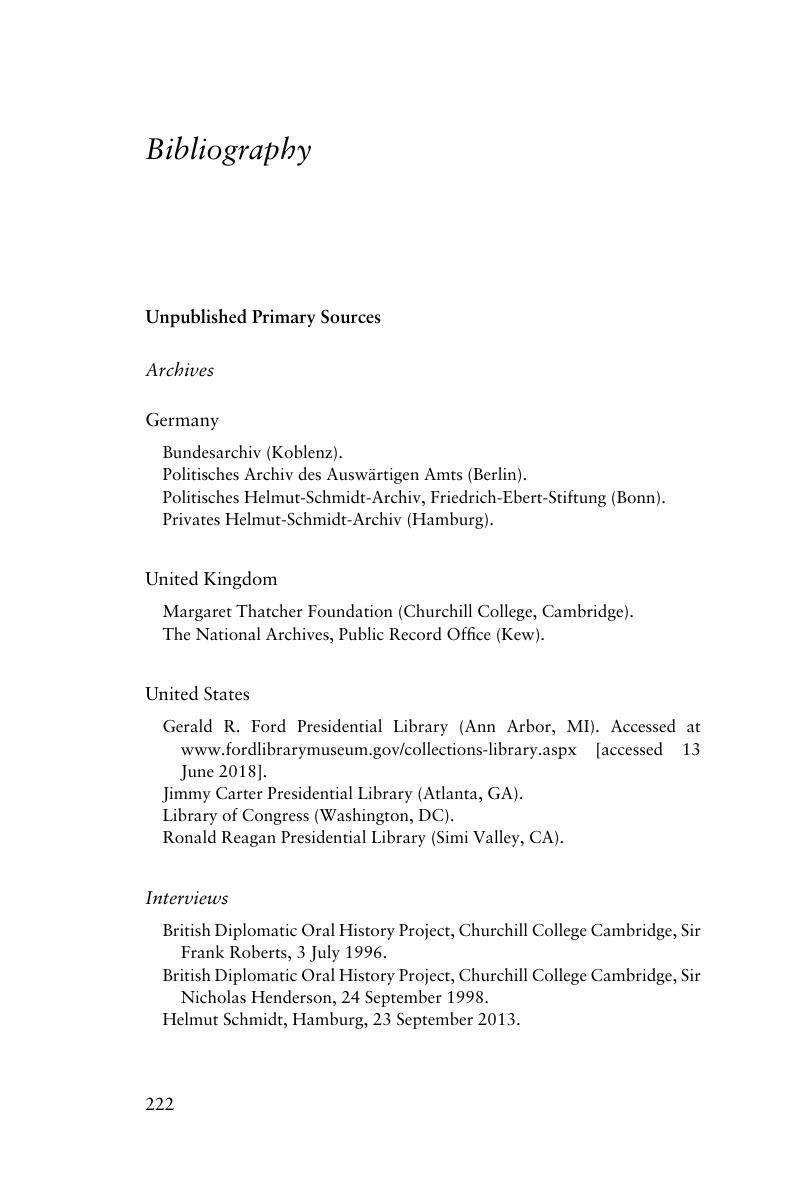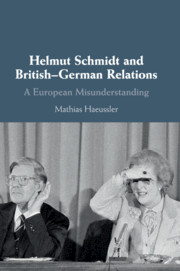Book contents
- Helmut Schmidt and British–German Relations
- Helmut Schmidt and British–German Relations
- Copyright page
- Contents
- Illustrations
- Acknowledgements
- Abbreviations
- Introduction
- 1 The Young Helmut Schmidt and British–German Relations, 1945–1974
- 2 Harold Wilson, 1974–1976
- 3 James Callaghan, 1976–1979
- 4 Margaret Thatcher, 1979–1982
- Conclusions
- Bibliography
- Index
- References
Bibliography
Published online by Cambridge University Press: 18 March 2019
- Helmut Schmidt and British–German Relations
- Helmut Schmidt and British–German Relations
- Copyright page
- Contents
- Illustrations
- Acknowledgements
- Abbreviations
- Introduction
- 1 The Young Helmut Schmidt and British–German Relations, 1945–1974
- 2 Harold Wilson, 1974–1976
- 3 James Callaghan, 1976–1979
- 4 Margaret Thatcher, 1979–1982
- Conclusions
- Bibliography
- Index
- References
Summary

- Type
- Chapter
- Information
- Helmut Schmidt and British-German RelationsA European Misunderstanding, pp. 222 - 243Publisher: Cambridge University PressPrint publication year: 2019



